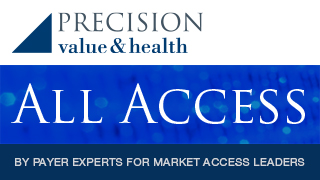While we determine the lasting effect of COVID-19, engaging and keeping members are priorities for regional Medicare plans. The key takeaways for delivering unique member experience and leveraging data to build loyalty include:
- The pandemic has changed member engagement and Medicare plans are adapting
- Create a unique member experience by asking the right questions
- Long-term engagement builds trust and loyalty
- Engagement is a brand differentiator for age-in
- Measure the member relationship
The pandemic has changed member engagement and Medicare plans are adapting
The COVID-19 pandemic has accelerated a number of existing trends in member engagement. Telehealth access outreach, check-ins with members about their wellbeing, and conversational engagement to both inform and uncover insights all took on much greater importance. For plans where these member-centric touchpoints and engagement procedures were already in place, the trust between member and plan was greater once the crisis started. Early COVID-19 engagement strategies from the plans already engaging conversationally have given plans a unique advantage to build even deeper connections with members.
Create a unique member experience by asking the right questions
When a plan can ask the right questions and supply the proper resources, members are more likely to engage and leave the conversation feeling heard. Plans often have underutilized resources and interventions due to a lack of member awareness, or because plans do not know who needs what. But simply asking members in conversational channels if they are experiencing issues like social isolation or food insecurity both creates the opportunity to connect them with resources and identifies members who may need follow-up. By asking the right questions, a plan can uncover barriers to action such as transportation, health literacy, language, and the like. Asking and then providing the member with the appropriate resources will not only drive engagement and drive behavioral change, it will help build the trust needed to engage in future conversations.
Long-term engagement builds trust and loyalty
Loyalty is a product of building trust. A member is more likely to engage in future conversations when they feel like the plan is invested in their health as much as they are. Trust comes from a plan that communicates accurately, timely, and quickly. In addition to the COVID-19 outreach from plans that were already having conversations with members regularly, it should be noted how important building trust over time can be when it comes to SDOH barriers. Members are more likely to share barriers and more likely to accept help and interventions when there’s trust in an established relationship. The stronger that relationship, the more confident a plan can be in retaining that member over time, and counting on them to engage in the future.
Engagement is a brand differentiator for age-in
Because trust is established during ongoing conversations over an extended period of time, when a member is ready to transition into Medicare, they are more likely to accept information and resources from their plan. That level of trust will keep members open and willing to communicate with their plan on a regular cadence. mPulse1 has found that members who received text outreach from their plan previously about health or services were much more likely to request information on their payer’s Medicare plan options via text. Leaning on the trust built throughout the relationship to continue to ask questions about their experiences with their healthcare and using that data from past conversations with the member to tailor age-in outreach can be a winning combination for both retention and member experience.
Measure the member relationship
The data you get from engagement depends on the questions you ask. There is value in all variations of member responses. Discovering whether a member is happy or unsatisfied with their plan creates the opportunity to tailor further engagement. Sentiment and intent analysis of member responses to automated outreach provides valuable feedback to the plan. Asking a member directly how they feel about their plan, or measuring positive and negative responses to questions about their health or the COVID-19 pandemic, gives plans insight on retention risks, hotspot geographies that may have provider network issues, or topics where members seem to be dissatisfied. Uncovering these potential blind spots and quantifying members’ expressed feelings toward their plan gives payers actionable data to impact everything from future engagement strategies to benefit design.
As member experience and engagement are important factors for regional health plans, it will be important for manufacturers to leverage programs and pilot partnerships to support these priorities for health plans. Health plans are now more interested in retaining members and providing valuable services to help members obtain better health outcomes.
References
- Fierce Healthcare. [Webinar] Optimizing Health Outcomes Through Member Engagement. https://pages.questexnetwork.com/mPulse-Registration-121819.html?source=listing&_ga=2.199654694.949004231.1598643733-140946652.1594675108. Accessed


